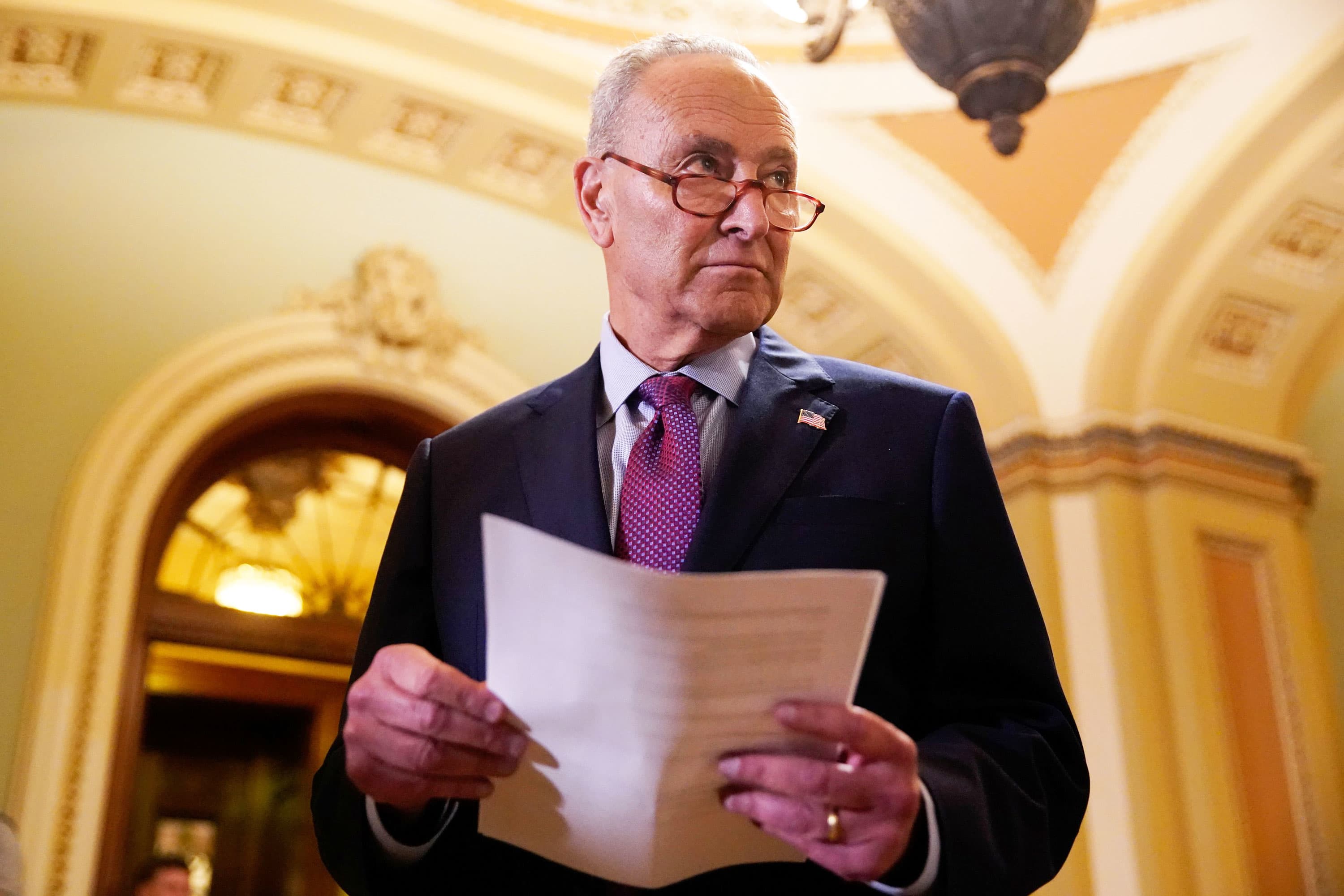
U.S. Senate Majority Leader Chuck Schumer (D-NY) looks down the hall after speaking to reporters following the Senate Democrats weekly policy lunch at the U.S. Capitol in Washington, July 20, 2021.
Elizabeth Frantz | Reuters
WASHINGTON – A key procedural vote on the $1.2 trillion bipartisan infrastructure plan failed to pass the full Senate on Wednesday, after Republicans united in opposition to moving ahead with an unfinished bill.
The vote failed 49-51, with all Republicans lined up against it. The measure, a placeholder for the eventual bill, needed 60 votes to clear a key procedural hurdle. In an evenly split Senate, Democrats needed 10 GOP votes to advance it.
Senate Majority Leader Chuck Schumer, D-N.Y., changed his vote to “no” in order to be able to bring the vote up again.
Following the vote, a bipartisan group of 22 senators working on the infrastructure deal issued a joint statement.
“We have made significant progress and are close to a final agreement. We will continue working hard to ensure we get this critical legislation right—and are optimistic that we will finalize, and be prepared to advance, this historic bipartisan proposal to strengthen America’s infrastructure and create good-paying jobs in the coming days,” said the group.
“We appreciate our colleagues on both sides of the aisle, and the administration, working with us to get this done for the American people.”
The outcome of Wednesday’s vote was a foregone conclusion – Republicans had made no secret of their plan to vote against it.
“We’re just not ready,” Sen. Rob Portman, R-Ohio, said in an interview on CNBC’s “Squawk Box” Wednesday morning.
Instead, Republicans had called on Schumer to postpone the vote until Monday to give the bipartisan group more time to finalize an agreement.
But Schumer rejected calls delay the vote. “I’ve been very clear about what this vote is,” Schumer said Wednesday morning, calling it “the first step in the legislative process.”
“This vote is not a deadline to have every final detail worked out,” he said.
The failure of Wednesday’s effort to advance the bill is only a minor setback for the leader: Schumer can reintroduce the bill for a vote any time.
Schumer and other Democratic leaders, with the backing of President Joe Biden, seek to advance the bipartisan infrastructure bill in tandem with a $3.5 trillion budget resolution that is likely to get no Republican support.
The bipartisan plan, which would fund a nationwide update of physical infrastructure systems such as bridges and waterways, would include $579 billion in new spending above a congressional baseline and cost $1.2 trillion over eight years.
The budget resolution, meanwhile, would pour federal money into addressing an array of issues, including climate change and health care.




